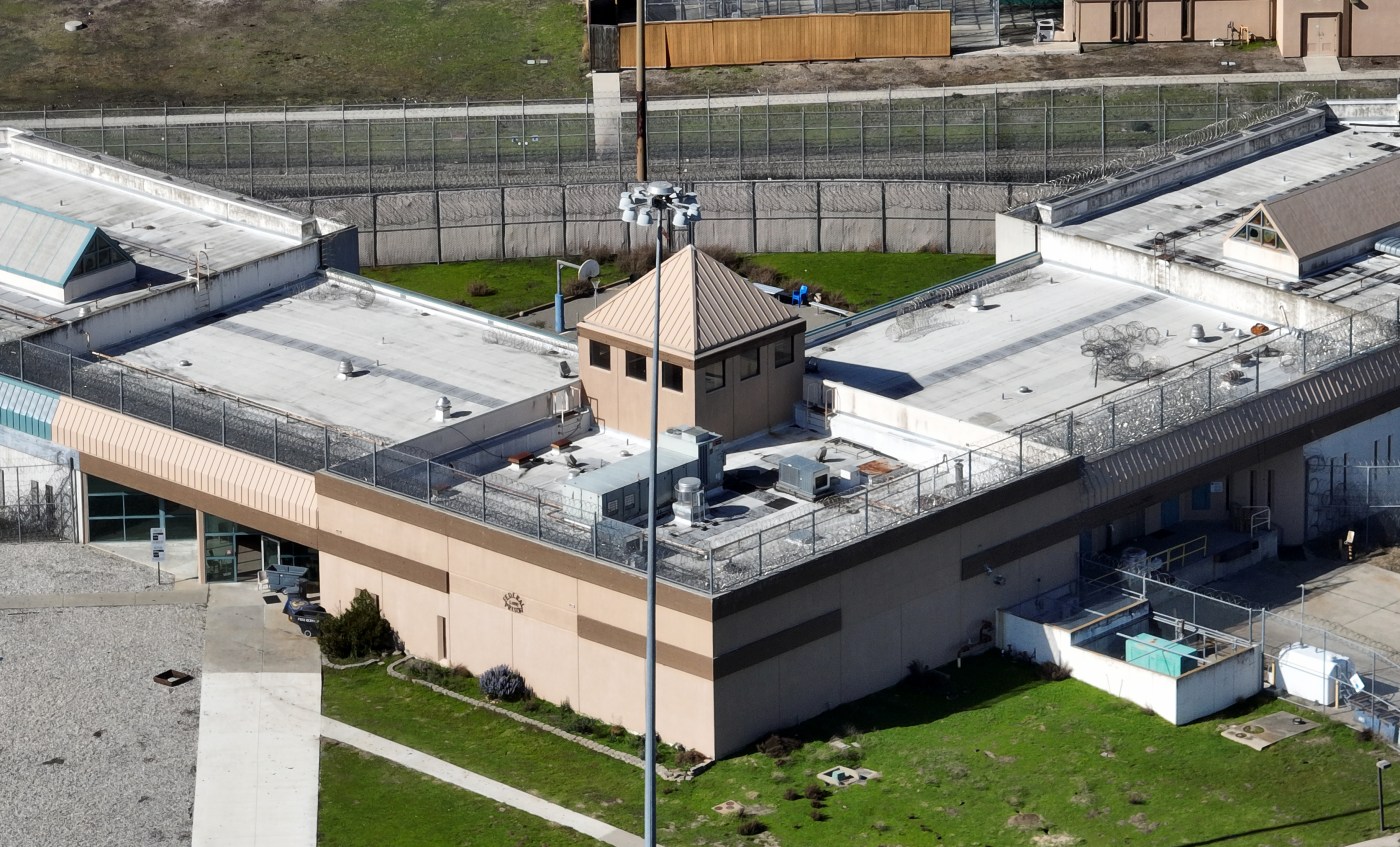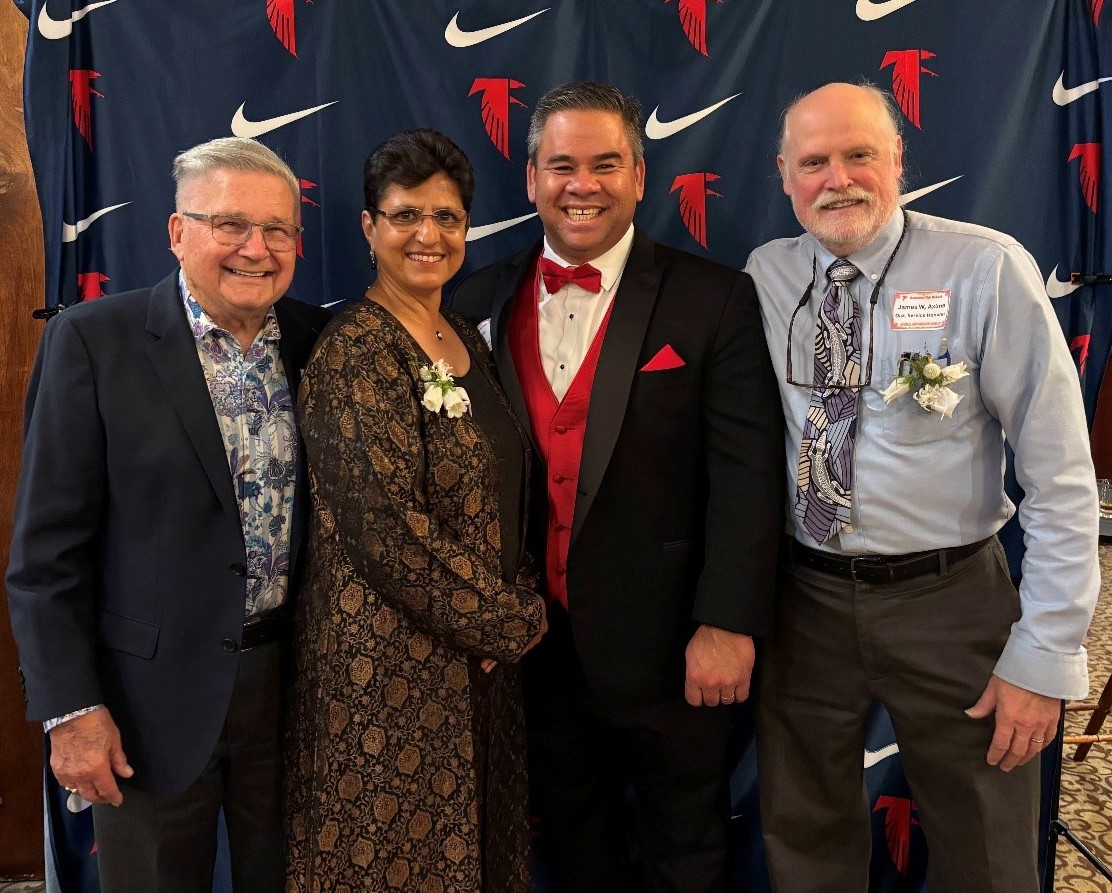OAKLAND — Darrell Smith allegedly made himself a noticeable fixture at the FCI Dublin women’s prison — at least once swapping his guard’s uniform for leather boots, an unbuttoned shirt and a cowboy hat over tenure that stretched more than five years, authorities say.
Now, a jury must decide whether the outgoing veteran prison guard’s reputation as “Dirty D— Smith” underlaid a campaign to sexually prey upon inmates under his watch, or made him an unnecessary — and wrongfully accused — target for sham abuse allegations.
Jury deliberations began Monday in Smith’s federal trial on 15 counts of sexual abuse and depravation of rights, stemming from his time working at the now-shuttered Dublin federal women’s prison. He is the last of eight prison guards and executives to face trial in a sprawling investigation sparked by concerns the facility was ruled by an alleged “rape club” who terrorized inmates for years.
In all, 12 women took the stand and described either personally being abused by Smith, consoling women who had been, or seeing it happen themselves in 2020 and 2021.
“If you put their stories together, what you have is a horrifying portrait of coercion, manipulation and abuse,” Assistant U.S. Attorney Andrew Paulson told the jury.
Paulson said Smith stuck to a routine format – befriend inmates and shower them with gifts or promises of an early release, before demanding they strip for him or comply with his sexual demands.
The guard connected with one inmate by sharing his Native American lineage and talking about his wife, then promising to get the woman out of prison because she was “hot,” Paulson said. Later, he allegedly began cornering her in her cell, groping her and at one point used force to sexually assaulting her as she cried “no,” Paulson told the jury.
Prosecutors said he trapped another woman in a janitorial closet while he wore a cowboy outfit. When she asked what he wanted, he allegedly replied “you already know, just cooperate,” then forced his penis into her, prosecutors said. He allegedly left the woman in the closet weeping.
Over and over, Paulson said, Smith laughed when the women told him to leave their cells or stop the abuse.
“He laughed because he felt secure,” said Paulson, recounting one moment where Smith boasted to one of his victims that “it pays to know people in high places.”
Prosecutors also pointed to internet searches made by Smith on his personal iPad, which appeared to bear an eerie similarity with his alleged crimes, including of women being forced into sex.
Yet Smith’s attorney called the allegations a “golden ticket” for each of Smith’s accusers, given the growing number of settlements paid by the federal government for alleged abuse at the prison.
As with much of the government’s case, Smith’s internet search history results were “selectively-filtered, cherry-picked and stripped of context,” said the attorney, Naomi Chung. She went on to describe Smith’s accusers as women who spoke out when “it became clear that benefits were on the table for the taking.”
Chung referenced one accuser who received a $1 million settlement from the U.S. government after reporting being abused, along with a transfer to another prison and later release to a halfway house before taking the stand.
“She got everything she wanted before she even stepped into this courtroom,” Chung said.
Chung noted how Smith already faced an investigation – and served a brief suspension – amid longstanding allegations of an inappropriate relationship with an inmate back in 2016. An arbitrator ultimately cleared him of the allegation, Chung said.
That made Smith an easy target and “the perfect patsy” for sham allegations, said Chung. If anything, she added, Smith was “systematically destroyed” by the prison.
“FCI Dublin didn’t just fail the inmates, it also failed Mr. Smith,” Chung said.
Smith was the last person charged in the sexual abuse scandal at FCI Dublin, which included an alleged “rape club” that led to a torrent of lawsuits and ultimately to the prison’s closure in 2024.
Prosecutors secured guilty pleas or convictions at trial against the seven other prison guards and leaders charged with sexual abuses at the facility – chief among them the prison’s former warden, Ray J. Garcia, and its chaplain, James Theodore Highhouse.
Lawsuits have claimed prison leaders cultivated a culture of abuse and retaliation, while providing decrepit health care. One suit received class-action status for hundreds of women housed at the prison in spring 2024, leading to an unprecedented settlement that secured numerous protections and an independent monitor to help guard against further abuse.
Another settlement secured a $116-million payout from the government for slightly more than 100 of those inmates; other lawsuits remain ongoing.
The prison itself now sits vacant, having been permanently closed by the Bureau of Prisons in December 2024, citing low staffing levels and “considerable repairs” needed to the facility. The move was initially cheered by inmate advocates as long overdue, but they now fear the prison could be reopened as a migrant detention center as part of President Donald Trump’s ongoing immigration crackdown.
Prosecutors stressed that Smith’s accusers came forward only to see justice. One prosecutor on Monday read aloud one victim’s testimony, when she recalled how “the damage” that “they caused me, it’s more painful than anything. And I don’t think I can recuperate from it.”
Smith’s attorneys warned the jury against believing those accounts.
“You were given evidence curated to push their narrative, not to reflect reality,” Chung said. “That’s dangerous.”





